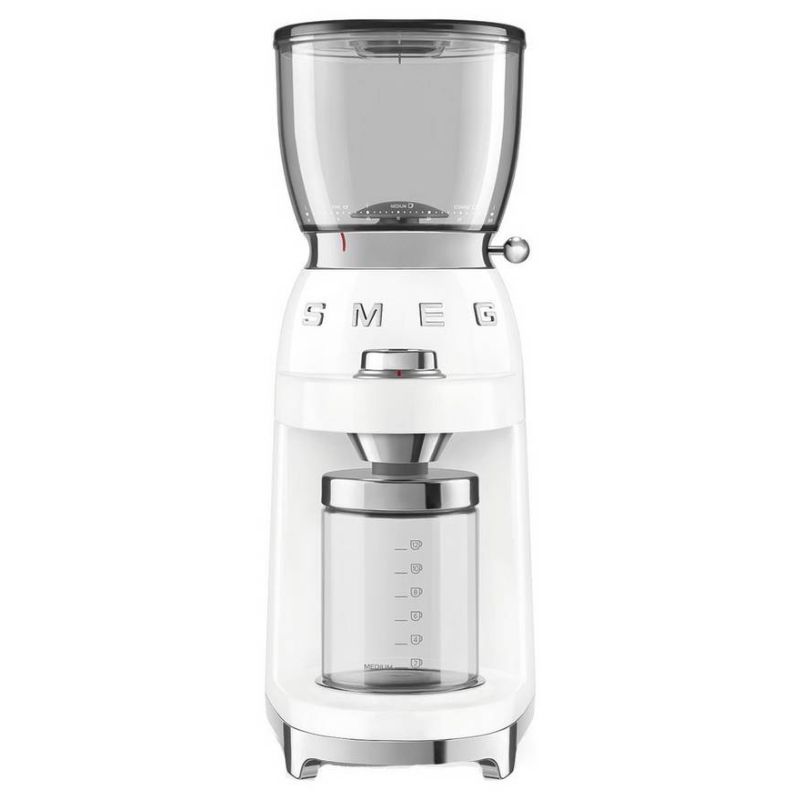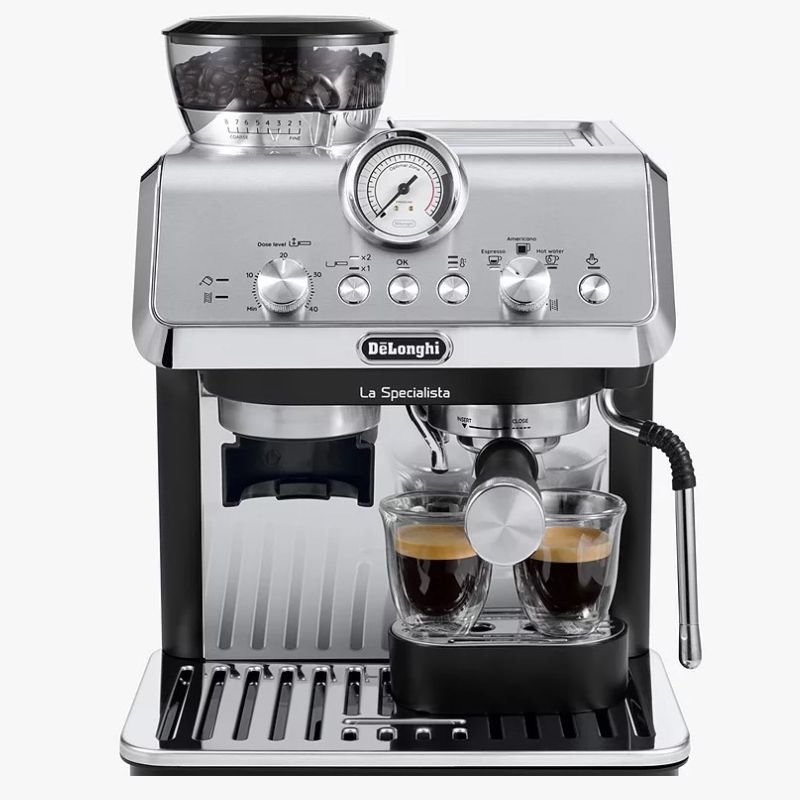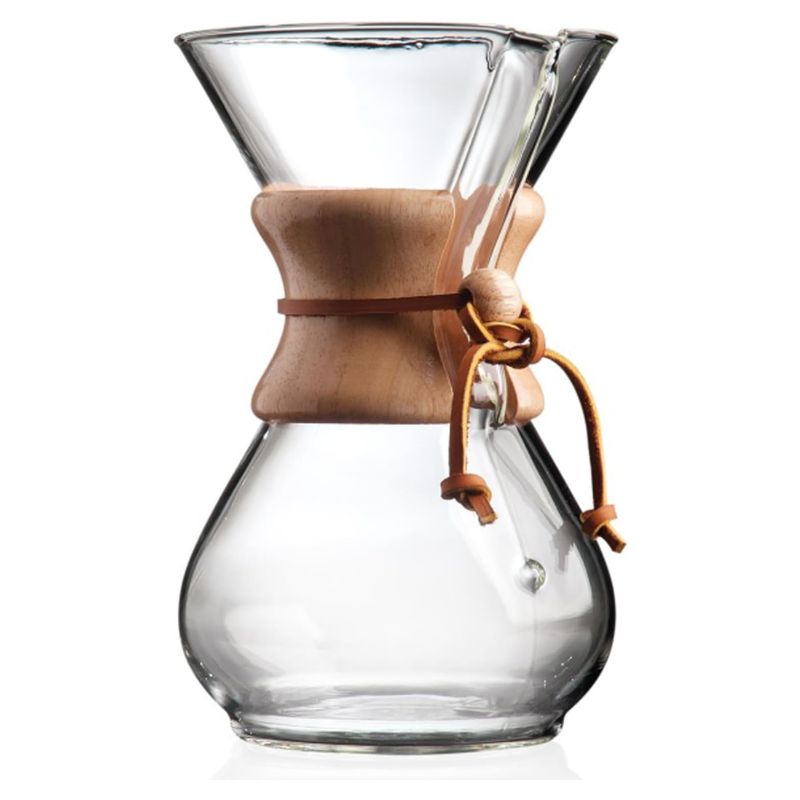Is coffee good for gut health? Nutrition experts reveal the truth behind our favourite wake-up call
Is coffee good for gut health? Or is it time to bid adieu to our beloved caffeinated friend?


Is coffee good for gut health? A question some of us may ponder over our morning cup and perhaps a little afterwards when our buzzing bodies catch up with the caffeine. But is this daily delight safe to enjoy or could it be wreaking havoc on our gut?
Whether you're a caffeine fiend who couldn't live without the best coffee machine in their kitchen or are the restrained one-cup-a-day type, coffee in any capacity can pack a punch in more ways than one.
Whilst there are proven health benefits of coffee, there's no denying that it can sometimes have adverse effects on our bodies too. Nutritionist Lara Buckle explains that the effects of coffee on the gut can differ from person to person, "It really depends on the person, hence the importance of personalised nutrition. Coffee is acidic, which can be problematic for individuals with acid reflux or sensitive stomachs." However, for others, coffee can be just as beneficial as a gut-healthy food.

Buckle is not only a qualified and clinically trained, registered nutritionist but she's also a women's health coach and weight loss specialist. Based in London, she works with individuals to offer personalised wellness coaching through both mental and physical practises.
Is coffee good for gut health?
If you're starting your gut health journey or perhaps looking for ways to look after your gut health in winter, then don't panic - you might not have to say goodbye to coffee just yet.
"Some studies show that coffee can increase microbiome diversity, which might be linked to the fact coffee contains polyphenols and soluble fibre," explains Buckle. Each mug of coffee has around half a gram of fibre, so drinking a couple of cups a day can give you the same amount of fibre as eating a bowl of cereal or a small banana.
One of the health benefits of coffee is that it also contains microbial molecules, Buckle says, which help reduce the presence of harmful microbes, making room for good bacteria and helping them flourish. "The fibre is fermented by the microbes in your colon to produce helpful short-chain fatty acids, which help the beneficial bacteria species in our guts to flourish," she continues.
On the other hand, these benefits don't always apply to everyone. Buckle says that those with caffeine sensitivity might experience several side effects from drinking coffee. These include jitteriness, disrupted sleep, and digestive discomfort. She says, "It may also increase stress levels, potentially affecting gut health." So whilst it's not one of the worst foods for gut health, it's best to drink in moderation.
Sign up to our free daily email for the latest royal and entertainment news, interesting opinion, expert advice on styling and beauty trends, and no-nonsense guides to the health and wellness questions you want answered.
Which coffee is best for gut health?
Everyone has their preferred way of drinking coffee, whether that's grounded, instant, black, milky (or perhaps you're into mushroom coffee nowadays). However, how you take your coffee can determine its effectiveness in helping your gut and how healthy it can be for you in the long run.
It turns out that the most gut-friendly way to drink your coffee is to start with ground or whole-bean coffee, which nutritionist from Nordic Balance Katia Frank says, "contains more bioactive compounds and antioxidants compared to instant coffee". She explains how the presence of these compounds, such as polyphenols, may have potential benefits for gut health given their prebiotic effect which may promote the growth of your beneficial gut bacteria.
Milk in your coffee can add nutrients such as calcium and protein but it can also be one of the foods that cause bloating. If you're lactose intolerant or sensitive to dairy, then Frank recommends using alternatives such as soy or almond milk. Along with milk, sugar can also play a part in altering the healthiness of your beloved mug of coffee. Frank says, "Adding excessive sugar or sweeteners can negatively affect gut health so rather use these in moderation."


As a nutritionist and gut health specialist at Nordic Balance, she works with clients who are looking to correct imbalances in their diets that may be triggering symptoms and creating digestive problems. Frank is regulated by the British Association for Nutrition and Lifestyle Medicine as well as the Complementary and Natural Healthcare Council.

RRP: £220 | When it comes to appliances, Smeg certainly knows what they're doing and this coffee grinder is no exception. With 30 griding levels, you can have freshly ground coffee at the push of a button, perfect for your espresso machines, french presses and American coffee makers.

RRP: £349 | If you're looking for an all-in-one, coffee machine then look no further than this De'Longhi model. It has eight grind settings, a latte art system, a professional tamper, a milk jug and lots more. The integrated grinder will ensure your whole-bean coffee is as fresh as can be.

RRP: £42.84 | This is the perfect way to integrate that gut-healthy ground coffee into your life without spending hundreds of pounds. This wood neck coffee maker simply needs some pre-folded filters and your favourite ground coffee, and once you're done with your morning cuppa, compost the grounds and recycle the filter.
Decaf or caffeinated: which is best for gut health?
- Caffeine sensitivity: If you have caffeine sensitivity then it's best to opt for decaf, not only your gut but the rest of your body. Frank says, "If you are sensitive to caffeine, excessive intake can lead to jitteriness, increased heart rate, and potential disruptions to sleep, which can indirectly affect gut health." But it's important to note that even decaf coffee has small traces of caffeine in it.
- Caffeine benefits: As much as avoiding caffeine can be best for our guts and our nerves, certain nutritional benefits can only be found in the caffeinated stuff. "Regular coffee, with its caffeine content, contains various bioactive compounds such as polyphenols and antioxidants, which may have potential health benefits, including gut health," explains Frank. While decaf does contain some of these compounds, the levels are a lot lower.
- Dehydration from caffeine: Unfortunately, despite its benefits, caffeine has its potential drawbacks too. Frank explains how it has diuretic properties, which means that it can increase urine production which can make you more dehydrated. "Staying hydrated is essential for overall health, including gut health. Decaffeinated coffee has a much milder diuretic effect so can be considered a more hydrating beverage," says Frank. So if you want that caffeine kick, make sure to keep a glass of water nearby as an easy way to improve your gut health without sacrificing your fave beverage.
So while it's thankfully not all bad news for coffee lovers, it is important to keep hydrated and drink in moderation when chasing that caffeine kick. After all, coffee is a stimulant and will more than likely affect your gut so it's best to figure out what type works for you and stick to it.

Emily joined woman&home as a staff writer after finishing her MA in Magazine Journalism from City University in 2023. After writing various health and news content, she now specialises in lifestyle, covering unique cleaning hacks, gardening how-tos, and everything to help your houseplants thrive.